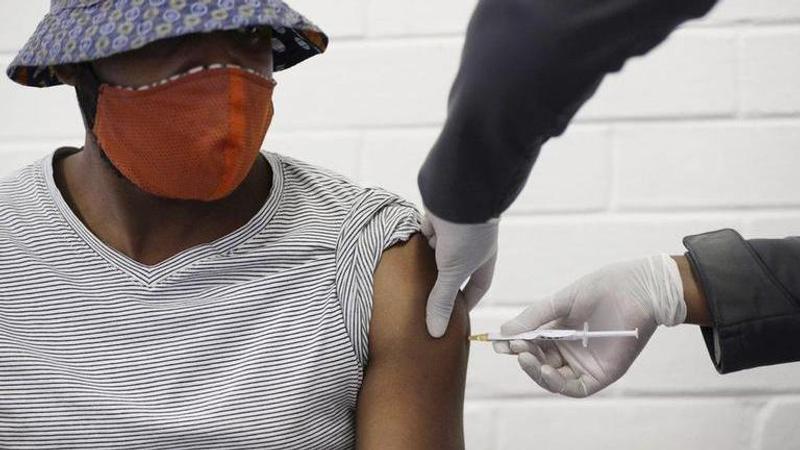Published 12:20 IST, July 14th 2020
Vaccine plan may allow rich countries to buy more
Politicians and public health leaders have publicly committed to equitably sharing any coronavirus vaccine that works, but the top global initiative to make that happen may allow rich countries to reinforce their own stockpiles while making fewer doses available for poor ones.

Politicians and public health leaders have publicly committed to equitably sharing any coronavirus vaccine that works, but the top global initiative to make that happen may allow rich countries to reinforce their own stockpiles while making fewer doses available for poor ones.
Activists warn that without stronger attempts to hold political, pharmaceutical and health leaders accountable, vaccines will be hoarded by rich countries in an unseemly race to inoculate their populations first.
After the recent uproar over the United States purchasing a large amount of a new COVID-19 drug, some predict an even more disturbing scenario if a successful vaccine is developed.
Dozens of vaccines are being researched, and some countries — including Britain, France, Germany and the U.S. — already have ordered hundreds of millions of doses before the vaccines are even proven to work.
"I think our greatest fear is if we continue with a system that allows pharmaceutical companies all the monopoly control over the medical solutions to this pandemic, that we're going to see a situation of a bidding war essentially between rich countries that can afford to make bilateral deals with the pharmaceutical companies suck up all of the available supply and even advance supplies of these vaccines and treatments when they become available, leaving huge inequity and access across the globe", says Anna Marriott from Oxfam International.
While no country can afford to buy doses of every potential vaccine candidate, many poor ones can't afford to place such speculative bets at all.
The key initiative to help them is led by Gavi, the global vaccine alliance started by the Bill & Melinda Gates Foundation that buys vaccines for about 60% of the world's children.
In a document sent to potential donors last month, Gavi said those giving money to its new "Covax Facility" would have "the opportunity to benefit from a larger portfolio of COVID-19 vaccines."
Gavi told donor governments that when an effective vaccine is found within its pool of experimental shots, those countries would receive doses for 20% of their population. Those shots could be used as each nation wished.
That means rich countries can sign deals on their own with drugmakers and then also get no-strings-attached allocations from Gavi.
The donor countries are "encouraged (but not required) to donate vaccines if they have more than they need," the document says.
Dr. Seth Berkley, Gavi's CEO, says the alliance discussions are ongoing with countries that have bilateral deals.
"Right now, there's no vaccine for either developing countries for upper middle-income countries or for some high income countries that don't have bilateral deals. We're trying to solve that problem," he said.
"In solving that problem, what we've basically said is we'll make doses available to lower income countries and lower middle-income countries at the same time as upper middle income and high-income countries. That's the fair thing to do. We will meet with those countries and have a discussion. If those countries have a bilateral deal and they're getting doses, my sense, and we have to agree on this, is that they should go to the back of the queue," Berkley said.
Berkley said Gavi needed to make investing in a global vaccine initiative attractive for rich countries. Gavi would try to persuade those countries that if they ordered vaccines already, they should not attempt to obtain more, he said.
But he acknowledged there was no enforcement mechanism.
"If, at the end of the day, those legal agreements are broken or countries seize assets or don't allow the provision of vaccines (to developing countries), that's a problem," Berkley said.
Gavi asked countries for an expression of intent from those interested in joining its initiative by last Friday. It had expected about four dozen high and middle income countries to sign up, in addition to nearly 90 developing countries.
Richard Hatchett, CEO of the Coalition for Epidemic Preparedness Innovations, which is working with Gavi and others, said they would be talking in the coming weeks with countries who had signed deals with drug companies to secure their own supplies.
One possibility: they might ask countries to contribute their private vaccine stockpile to the global pool in exchange for access to whichever experimental candidate proves effective.
Last month, Gavi and CEPI signed a $750 million deal with AstraZeneca to give developing countries 300 million doses of a shot being developed by Oxford University.
But that deal happened after the drug company had already signed contracts with Britain and the U.S., who are first in line to get vaccine deliveries in the fall.
"We'll have to find a solution because some of these arrangements have been made and I think we have to be pragmatic about it. I think we also have to stick to our guns. The reason we've set the facility up is to, one achieve equitable access and two, to end the pandemic and that's what we're trying to do and solutions that are compatible with those objectives, I think we'll have to be open to discussing," he said.
The World Health Organization has previously said it hopes to secure two billion doses for people in lower-income countries by the end of 2021, including through initiatives like Gavi's. About 85% of the world's 7.8 billion people live in developing countries.
(Image credit: AP)
Updated 12:20 IST, July 14th 2020




